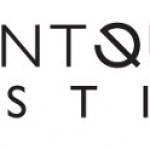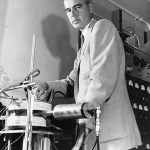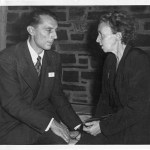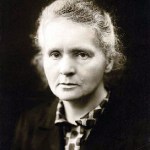Books
The Pip is in a big superhero phase at the moment, and all of his games revolve around being a superhero of some sort. He has also basically memorized a couple of 30-page Justice League books, after demanding them over and over at bedtime. As I did with SteelyKid, I make a game out of reading the wrong words from time to time, and as a result, he can now "read" at least two books all the way through, as you can see from this cell-phone video shot at bedtime:
His superhero pretend games have the bizarre inventiveness you expect from a pre-schooler, mixing and matching from all the various…
This Hugo nomination scandal continues to rage on, and much of what's going on is just a giant sucking vortex of stupid. Standing out from this, though, is the guest post by Bruce Schneier at Making Light, which cuts through the bullshit to get to what's really important, namely using this as an excuse to do some math.
One of the many terrible ideas being floated is to use some analysis of the clustering of ballots to identify "slate voters," and having done that... something. Target their address with orbital lasers, maybe, or just sternly "Tsk tsk" in their general direction. This depends,…
Last week, Steven Weinberg wrote a piece for the Guardian promoting his new book about the history of science (which seems sort of like an extended attempt to make Thony C. blow a gasket..). This included a list of recommended books for non-scientists which was, shall we say, a tiny bit problematic.
This is a topic on which I have Opinions, so I wrote a recommended reading list of my own over at Forbes. I'm more diplomatic about Weinberg than Phillip Ball was, but I have ego enough to say that I think my list is way better...
I won't pretend that it's a truly comprehensive list, though, so…
So, as alluded to over the weekend, the Hugo nominations this year are a train wreck. The short fiction categories are absolutely dominated by works from the "slates" pushed by a particular collection of (mostly) right-wing authors and that prion disease in human disguise "Vox Day." The primary purpose of the "slates" is to poke a stick in the eye of people on the other end of the political spectrum within SF, which is why three of the five nominees in one category got to John C. Wright channeling the spirit of Ayn Rand. If you want a round-up of the entirely predictable reactions to this…
All the way back in 2001, I got started on the whole blog thing by beginning a book log. That's long since fallen by the wayside, but every now and then, I do read stuff that I feel a need to write something about, and, hey, the tagline up at the top of the page does promise pop culture to go with the physics...
I've actually been on a pretty good roll with fantasy novels over the last few months, hitting a bunch of books that I've really enjoyed, without any real duds. I was actually pleasantly surprised by the first of these, Django Wexler's The Thousand Names. This got good reviews, but it…
We'll be accepting applications for The Schrödinger Sessions workshop at JQI through tomorrow. We already have 80-plus applicants for fewer than 20 planned spots, including a couple of authors I really, really like and some folks who have won awards, etc., so we're going to have our work cut out for us picking the attendees...
We're also discussing the program for the workshop-- more details when we have something more final-- which has me thinking about good examples to use of storytelling involving quantum physics. I'd like to be able to give a few shout-outs to already-existing fiction…
Sir Terry Pratchett, author of some mind-boggling number of books, mostly the comic-fantasy Discworld series, died yesterday. He had been diagnosed with a kind of early-onset Alzheimer's back in 2007, a particularly cruel fate for a writer, but faced it with an impressive degree of grace, and kept writing almost to the end. And, indeed, somewhat past it.
His work was a great comfort to me in some past bad times-- see this book review from 2001-- so his passing hits harder than for a lot of other authors. Not quite sure what to read to get past that...
(Actually, that's not entirely true; I…
Kate's a big consumer of audio books, but I've never been able to listen to them. About five minutes in, I doze right off, every time. However, I know there are a lot of folks like Kate who love audio books and listen to them while commuting, so I'm very happy to announce that Audible is now selling an audio edition of Eureka.
This is the first of my books to get an audio edition, which is cool-- we actually sold audio rights to the first one, but I guess after they paid for it, they discovered that it has a whole bunch of pictures that are kind of integral to the book. At least, I'm guessing…
I've updated the detailed blog post describing our summer workshop introducing writers to quantum physics to include a link to the application form. For the benefit of those who read via RSS, though, and don't follow me on Twitter: the application form is now live, and will be for the next few weeks. We expect to make acceptance decisions around April 1.
So, if you make up stories and the idea of spending a few days at the Joint Quantum Institute learning about quantum physics from some of the world's leading experts sounds like fun, well, send us an application.
A few years back, I became aware of Mike Brotherton's Launch Pad Astronomy Workshop, and said "somebody should do this for quantum physics." At the time, I wasn't in a position to do that, but in the interim, the APS Outreach program launched the Public Outreach and Informing the Public Grant program, providing smallish grants for new public outreach efforts. So, because I apparently don't have enough on my plate as it is, I floated the idea with Steve Rolston at Maryland (my immediate supervisor when I was a grad student), who liked it, and we put together a proposal with their Director of…
There's a new-ish book review podcast covering pop-science books, BookLab, hosted by Dan Falk and Amanda Gefter, and their latest episode includes my Eureka as the third of three books being discussed (a bit more than 40 minutes in, though their discussion of the other books is also interesting...).
It's sort of an odd experience listening to other people talking about my book; most of the audio I've heard about it is listening to my own interviews, where I'm actively participating (I recorded another radio interview yesterday; not sure when it will air, but I'll post a link). Happily, they…
No, not the little cover .jpg that I use as the "featured image" to tag these posts promoting Eureka. The post title refers to the Big Picture Science radio show from the SETI insitute. I'm one of the people interviewed in the latest episode, Maria Konnikova (author of Mastermind) and Louis Liebenberg.
This is another interview that was recorded remotely down at WAMC in Albany. They pushed back on my stock answers a little more than usual, which in one sense was fun, but was also pretty exhausting, as I was at the lowest point of the cold I'm just getting over now. I went home right after it…
(That title doesn't quite scan as is, but if you stick an "a" in there, you can sing it to the tune of a song from "Fiddler on the Roof"... You're welcome.)
The last time I taught my "Brief History of Timekeeping" seminar was in 2012, so I spent a bunch of time on the Mayan calendar. This time around, we've lost the obvious pop-culture hook, but it's still so weird and fascinating that I spent a class on it last week. One of the things we talked about was what this system (what we know of it) says about the Maya concept of time. There's a very obvious contrast between the interlocking…
Two new items about Eureka: Discovering Your Inner Scientist:
1) WAMC has now posted the interview I did with Joe Donahue on The Roundtable. This was a fun interview, and covers a number of examples from the book, so I think gives you a really nice sense of what it's all about.
2) There's a review of Eureka in New Scientist, along with two other books. It's fun to see all these different publications do reviews, because every reviewer latches onto a different example to feature. You can almost deduce the entire contents of the book if you read all of the different reviews...
The New Scientist…
"Hey," you say, "It's been, like, a week and a half since you did a post flogging Eureka: Discovering Your Inner Scientist. What gives?" Well, I've been kind of busy, and also the media world sort of goes into suspended animation over the stretch between Christmas and New Year's.
However, there's publicity stuff in the works. Specifically, the interview I recorded with Joe Donahue for The Roundtable on WAMC will probably air today. I'm not sure exactly when-- the show runs from 9am to noon, but I would bet on some time between 10:20 and 11:45, because I'm teaching a class then.
Anyway, it's…
One of the very best books I ran across in the process of doing research for Eureka is The Second Creation: Makers of the Revolution in Twentieth-Century Physics by Robert P. Crease and Charles C. Mann. It's an extremely detailed treatment of the development of quantum theory, and includes anecdotes that I haven't seen elsewhere. It also does a fantastic job of showing the essential interplay of experiment and theory through the difficult process of developing quantum field theory, which is often underplayed in popular treatments (which tend to be written by theorists, and often treat…
We're going to depart from the chronological ordering again, because it's the weekend and I have to do a bunch of stuff with the kids. Which means I'm in search of a story I can outsource...
In this case, I'm outsourcing to myself-- this is a genuine out-take from Eureka: Discovering Your Inner Scientist, specifically Chapter 2, which tells two stories from the career of Luis Alvarez, who I've talked about before in the context of his experiment to x-ray one of the pyramids at Giza, and the time I wrote him a letter when I was nine about his theory that an asteroid impact killed the dinosaurs…
Given that I am relentlessly flogging a book about the universality of the scientific process (Available wherever books are sold! They make excellent winter solstice holiday gifts!), I feel like I ought to try to say something about the latest kerfuffle about the scientific method. This takes the form of an editorial in Nature complaining that Richard Dawid and Sean Carroll among others are calling for discarding traditional ideas about how to test theories. Which is cast as an attempt to overthrow The Scientific Method.
Which, you know, on the one hand is a kind of impossible claim. There…
The winter solstice holidays are a time for family and togetherness, so building off yesterday's post about the great Marie Skłodowska Curie, we'll stay together with her family. Specifically her daughter Irène Joliot-Curie and her husband Frédéric. The Joliot-Curies are possible answers to a number of Nobel Prize trivia questions-- only mother and daughter to win, one of a handful of married couples, etc.-- but the scientific story about them that I find most fascinating is that their Nobel was for the third thing they did that could've earned them the prize, after they just missed out on…
There's no way I could possibly go through a long history-of-science blog series without mentioning the great Marie Skłodowska Curie, one of the very few people in history to win not one but two Nobel Prizes for her scientific work-- if nothing else, Polish pride would demand it. She made a monumental contribution to physics through her work on radioactivity (and through being nearly impossible to kill-- while her work on isolating radium made her ill for many years, she outlived an amazing number of her assistants...), and there are a lot of great stories about her.
This series is partly…




